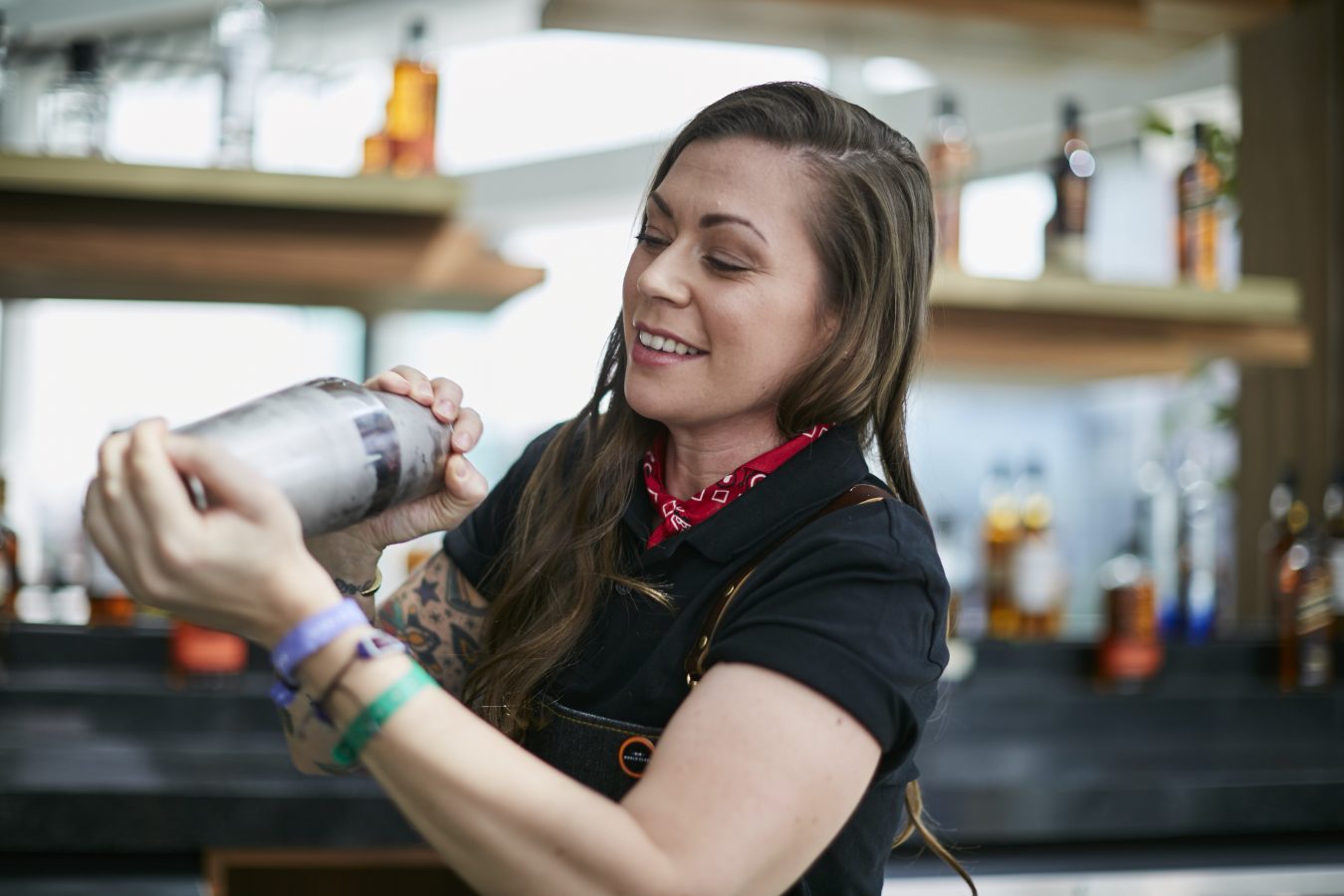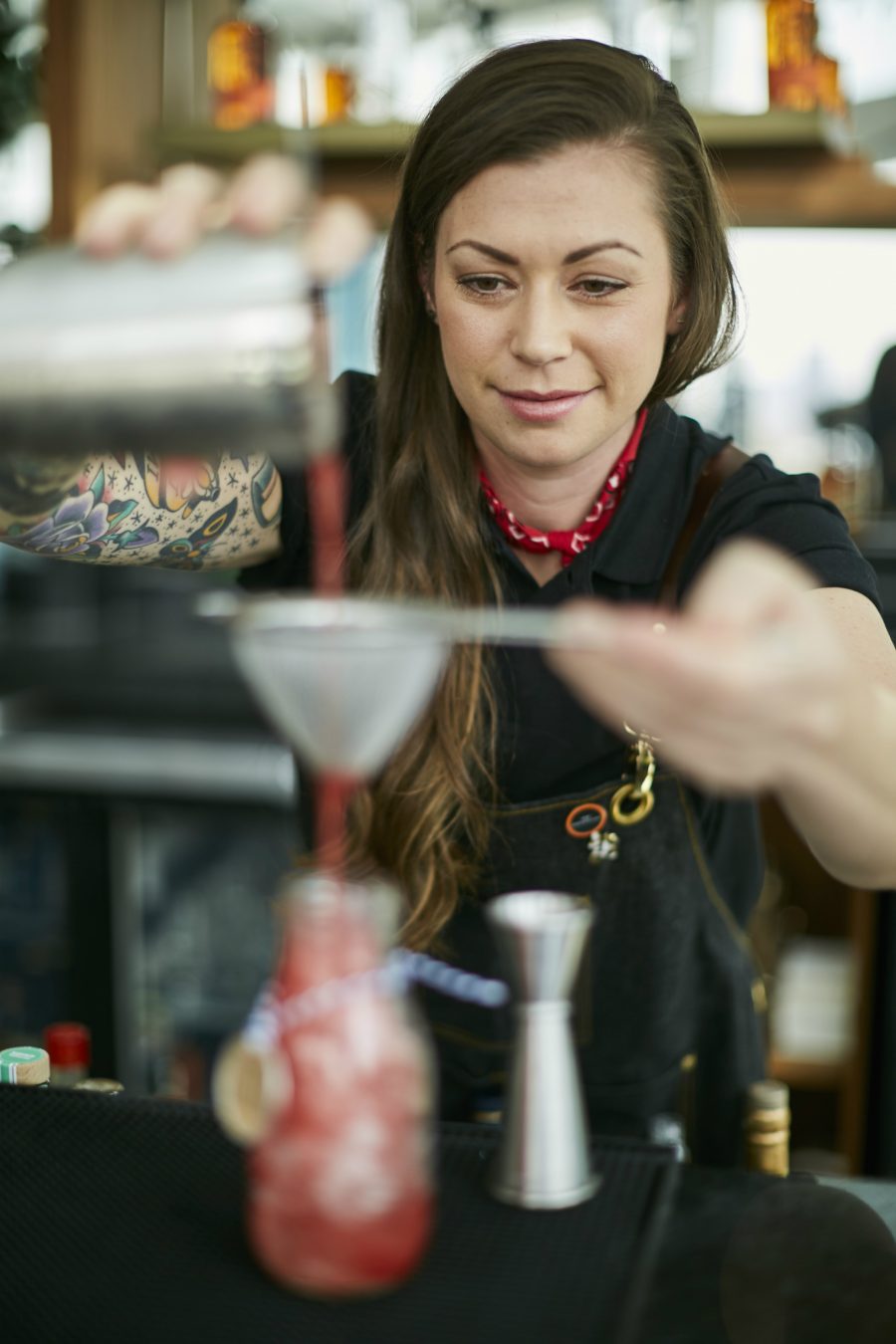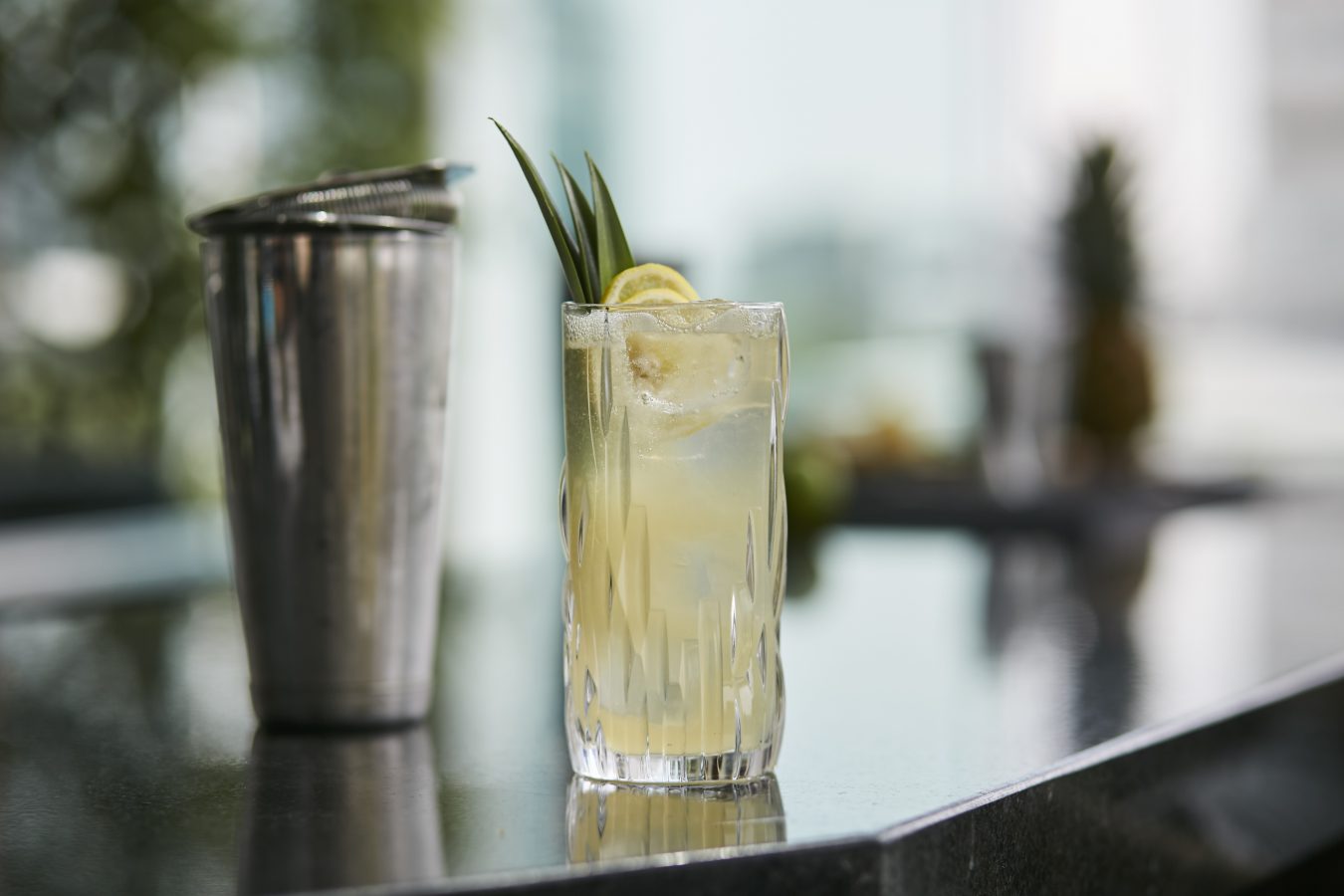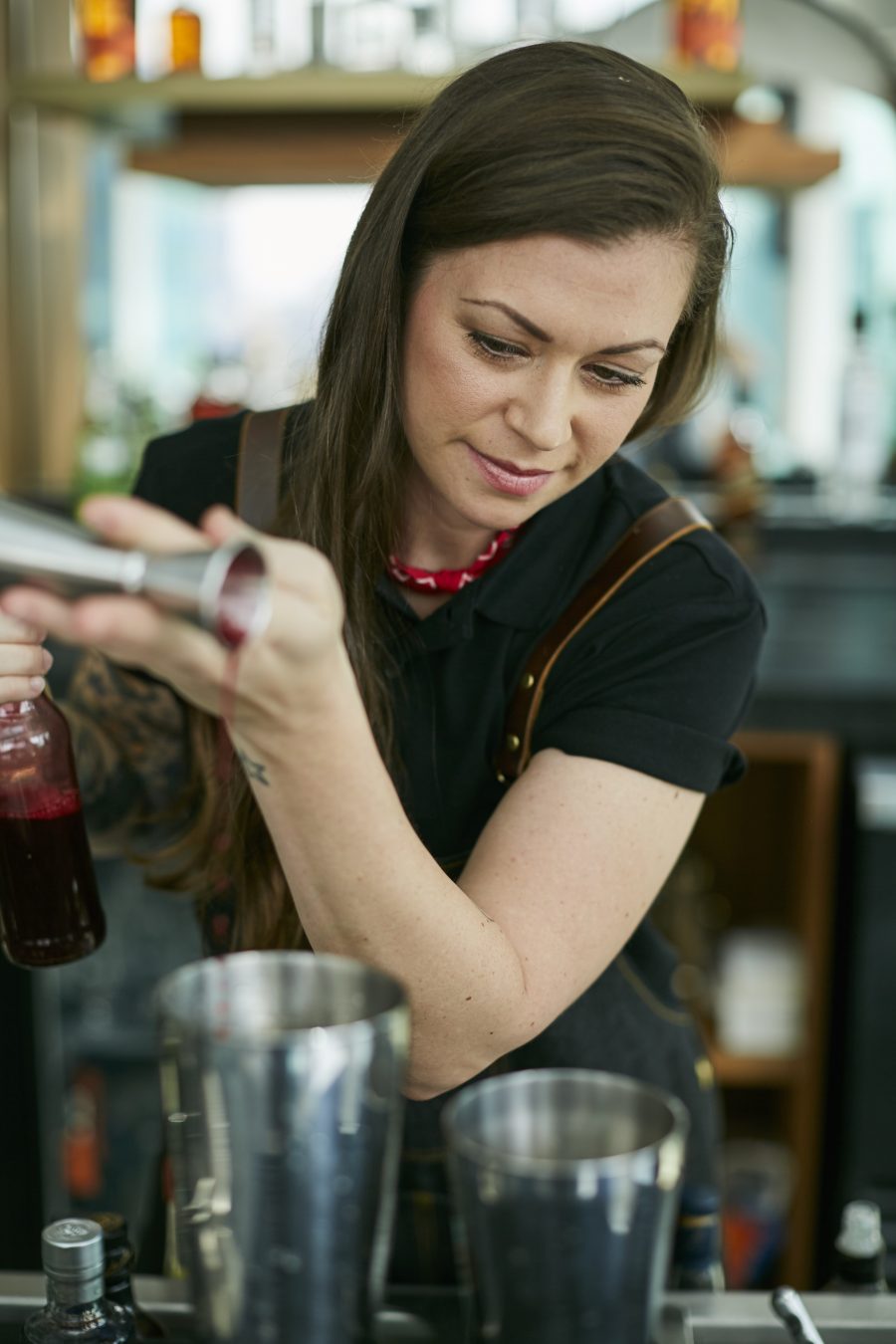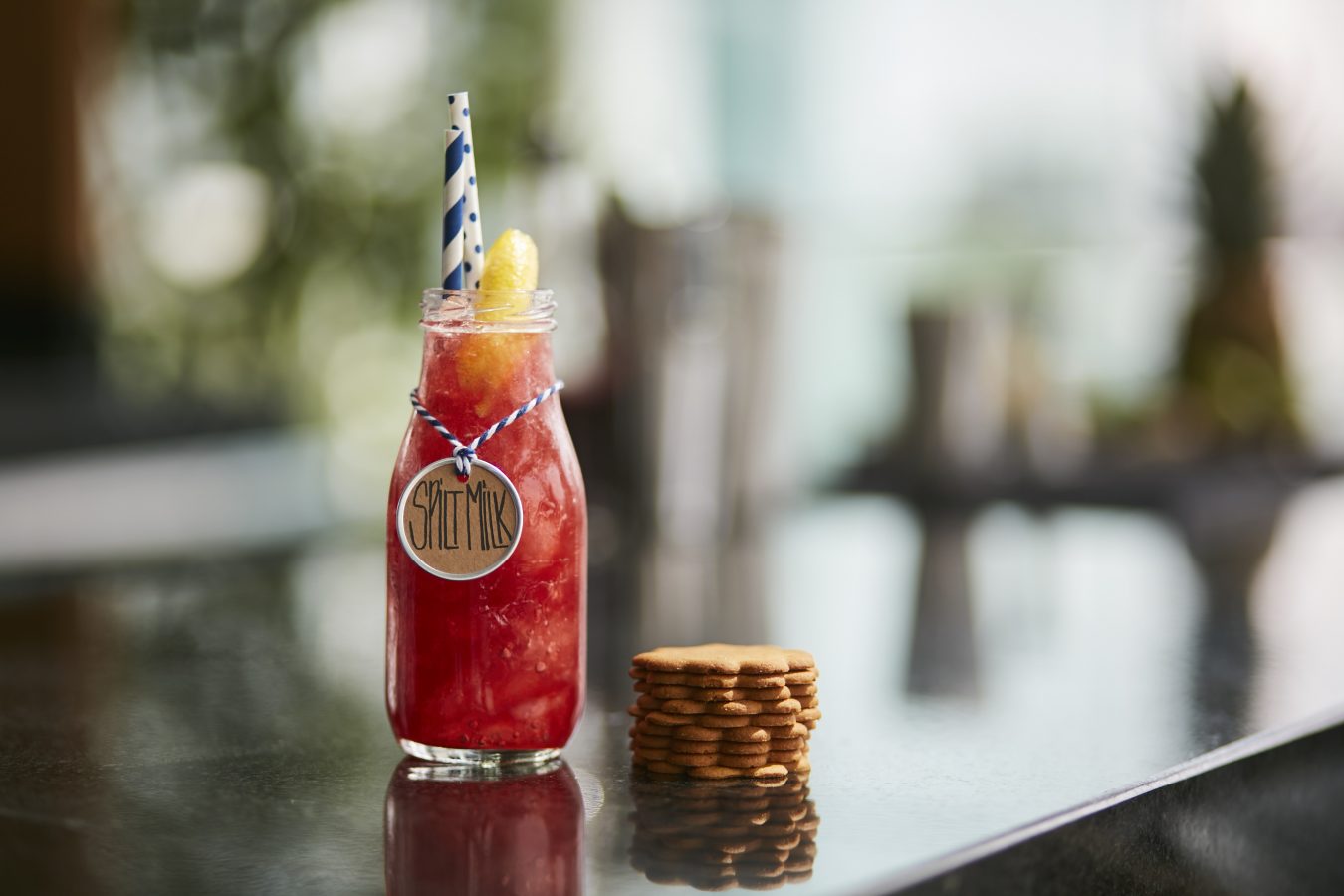If Kaitlyn Stewart had a recipe for success, it might include a shot of authenticity and a splash of resourcefulness. The Vancouver-based mixologist and Royal Dinette bar manager earned the prestigious title of world’s best bartender at the Diageo World Class competition in August 2017 in Mexico City.
After competing against highly skilled mixologists from 54 other countries, Stewart emerged victorious to become the first Canadian and second woman to win in the competition’s nine-year history. According to Stewart, one of her main priorities throughout the process was staying grounded despite the mounting pressure.
“I tried really hard to be myself and not put on an act, but it was daunting—especially during the last challenge. There were eight judges who are really big names in our industry, and it could have easily been intimidating,” she says. “But I tried to have the mental willpower to say, ‘These are guests sitting at my bar,’ and to treat them like I would treat anybody else and make them feel welcome.”
The four-day global finals tested bartending skills such as speed, creativity, technique, culinary acumen, and hospitality. The Mex ECO challenge tasked competitors with creating a zero-waste drink, and Stewart wowed with a diced pineapple cocktail—using every part of the fruit, including skin, pulp, and greens. One of the liveliest challenges occurred when the top 10 competed in a whirlwind speed round. Each concocted six cocktails in six minutes in the raucous setting of the Lucha Libre wresting ring, surrounded by wrestlers and a roaring crowd with hundreds of enthusiastic spectators. “Not in my wildest dreams did I think I’d be making cocktails in the middle of a Mexican wrestling ring,” recalls Stewart. “But it was my favourite thing ever.”
Stewart’s consistent performance throughout thrust her forward to the top four. Sequestered in a room, the final mixologists were given only 12 hours’ notice to complete the last challenge: present original cocktails (the recipes did not have to be created on the spot, though) inspired by the four elements, with 10,000 pesos (approximately $690 CAD) to spend on supplies. According to Stewart, one of the most stressful aspects of the challenge was deciding how to use the money provided.
“This year’s competition was focused on sustainability, and there were so many untapped resources at the hotel. So, we borrowed glassware, took advantage of the 24-hour test kitchen, and pulled from different rooms and pieced it together,” she says. “Instead of spending the pesos on resources, we donated the money to four different charities that matched the themes of the elements.” It was a move both imaginative and resourceful—two traits that all great bartenders must have.
Ultimately, Stewart decided to make four cocktails inspired by the most meaningful elements in her life: family, positivity, authenticity, and her cats. Fire was family, and Stewart was inspired by her sister, who was evacuated from the Fort McMurray fire two years ago. She chose to present her Fort Maiquiri cocktail (charred lemon and rosemary, smoke and oak bitters, and Zacapa 23 rum), which was served at a Royal Dinette fundraiser for the Red Cross Alberta Fire Appeal. Positivity was wind and represented Stewart trying to stay upbeat during the gruelling competition. The result was the Wind Mule made with Ketel One, butter-washed coffee, Amaro, and ginger beer. Next up, authenticity was matched with earth and inspired by her efforts to stay grounded. The aptly-named Let the Beet Drop was composed of Don Julio Blanco, mezcal, beet syrup, citrus, and salt.
Lastly, cats were the surprising inspiration for water. Stewart recalled that in the late 1700s in England, the water quality was so poor that many people turned to drinking more alcohol instead. A pub called The Puss and Mews featured a statuette of a black cat that dispensed gin when a coin was placed in its mouth and its paw was pulled down. Stewart paid homage to this quirky bit of history with a fresh twist on a classic drink she cleverly dubbed the Tom Cat Collins, made with Tanqueray 10, bitter Italian aperitif, milk liqueur, citrus, and bitters.
In the end, Stewart’s creative approach and consistent results helped her nab the winning title.
Over the next year, she will travel the globe as a World Class global brand ambassador for the reserve portfolio. She will craft cocktails, participate in workshops, and judge industry competitions. In 2018, Stewart will join the esteemed team of judges at the 10th-anniversary Diageo World Class Canadian finals (which Vancouverites Lauren Mote and Grant Sceney have won in previous years) and the global finals in Berlin.
“I get to do what I love every day, and now I get to do what I love and travel the world and meet some very cool people along the way. This coming year is going to be filled with adventure,” says Stewart. “I never thought that I would be in this position, and now that I am, I want to do as much as I can with it and take nothing for granted.”
Stewart may be a proud member of the Diageo World Class hall of fame, but it’s business as usual for her back in Vancouver at Royal Dinette. She considers the local spot her home base, and can’t say enough about how supportive her team has been. Stewart chuckles when people ask her if she’s quit her job. “First and foremost, I’m a bartender, and if I were to completely step away from that, I would totally miss it. Once you’ve won the title of world’s best, you can’t stop,” she says. “I respect my peers in this industry, and I want to hold this title for all of us and put Canada on the map just that much further.” She sure picked a fine way to start.

